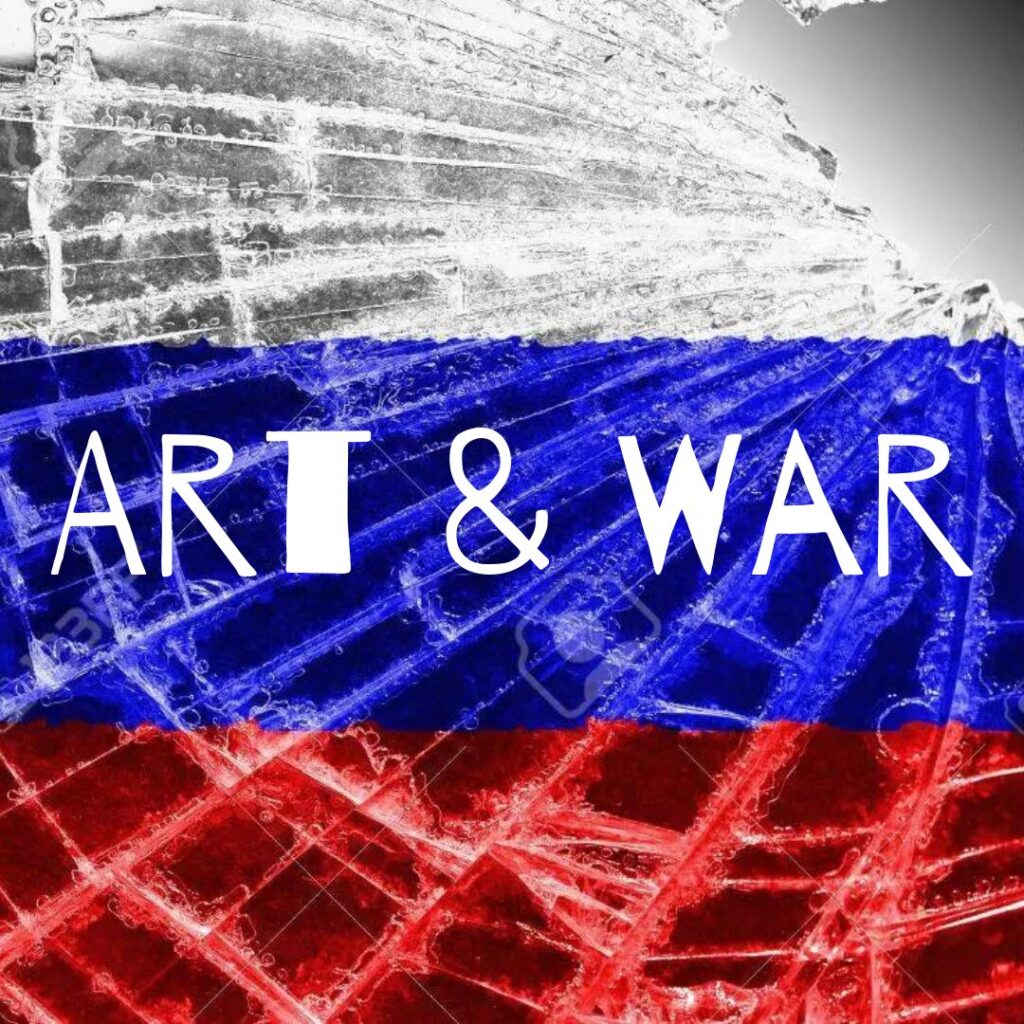ART & WAR

A few of weeks ago my mother shared an opinion piece on the cancellation of a Tchaikovsky concert in Wales. It quoted critics calling the musicians racists and exhibiting a “most dangerous moral panic”, without even asking the orchestra their reasons.
“If they had, the participants in this tizzy might have realized that the Cardiff Philharmonic is doing exactly what cultural institutions everywhere should: making hard decisions about global events with nuance and grace. As the orchestra’s director, Martin May, explained to me in an email, the philharmonic weighed several factors in deciding to cancel the concert. One was that “a member of the orchestra has family directly involved in the Ukraine situation.” A second was whether it felt right to play “Marche Slave” and the “1812 Overture” — both celebrations of Russian military prowess — as Russia ravages Ukraine. And the musicians didn’t want to offend Ukrainians by playing Tchaikovsky’s “Little Russian” symphony, given that the term has come to be associated with efforts to deny Ukraine a distinct national identity.” ( Alyssa Rosenberg, Washington Post)
The works selected for the concert in question were obvious, if not easy to understand their decision to cancel – but where does that line of arts as political judge end? Does this mean the end of sugar plum fairies, mouse kings and little girls vying to play Clara, as Tchaikovsky is also the musical architect of the Nutcracker?
The Met recently canceled the contract of Russian soprano Anna Netrebko, for while she repudiated the Russia invasion into Ukraine – she did not draw the line and denounce Putin. Her statement of protest read, “I am an artist, my purpose is to unite people across political divides.”
Is art political? Should it be? The very sentiment that art should stay out of politics, to be apolitical, or belief that art should remain art, is an impossibility. Art in its very existence is political. The drive of an artist to create art is an action of passion. The very act of creativity means something to the artist – and hopefully translates into a passionate reaction by the patron. During the depression, people flocked to the movies as “escapism”. Isn’t escapism a political act? Especially if one is escaping oppression or a societal issue, caused by or exacerbated by one’s government?
Is canceling a concert of Russian music celebrating military victory correct if that victory celebrates an autocratic government’s win over its people? What if the music selected celebrated the victory of its people overthrowing the autocratic government? Then is it OK to go forward with the concert? Are we all up on our world history enough to make those nuanced choices? Is it the role of the arts to educate the people about those nuances? Could it be?
Ms. Netrebko states she is not being political when she performs as an artist because she is “uniting people across political divides”; but is she not being political in doing so? Isn’t that the political power of the arts, to bring people together even when they stand across divides?
Another recently canceled artist is a young Russian pianist, Alexander Malofeev, who was scheduled to play with the Montreal Symphony Orchestra. He was canceled simply by his being Russian, not due to any ties or alliances with Putin or the government of Russia. Mr. Malofeev said in a statement, “Most of the people with whom I have personally communicated these days are guided by only one feeling, fear. I am contacted by journalists now who want me to make statements. I feel very uncomfortable about this and also think that it can affect my family in Russia. … Honestly, the only thing I can do now is to pray and cry. It would seem that there are obvious conclusions: No problem can be solved by war; people cannot be judged by their nationality … . I do understand that my problems are very insignificant compared to those of people in Ukraine, including my relatives who live there.”
(*The San Diego Union-Tribune on March 25, 2022, with the headline, Canceling concerts the wrong response to this war)
Does art have the power to defeat evil? When a country invades another, often the first action is to crush the other’s culture, and that means bombing opera halls, museums, and treasured architecture, or the seemingly simple yet tragic act of removing a letter from a nation’s alphabet… Art is a target. And yet it is art that gives strength in times of adversity… Art raises the people from ashes. Art sustains the souls of society.
After sharing the opinion piece about the concert in Wales, my mother reflected that she was not sure how she felt about it, and that she believes art should always be just art. However, should she be offered the opportunity to attend such a concert, she was not sure she would choose to attend.
Right now is a difficult time. We have come out of two years of a difficult time. Art doesn’t provide the answers, but it can ask the questions. Art sometimes makes a decision or statement that we may not agree with. But art is always essential, it makes us more human, more humane, and it makes us think.
Paige Miglio is the Executive Director of the Milford Arts Council, the MAC, celebrating 50 years of service in 2022 supporting and presenting all genres of art to the greater Milford Community. Visit: www.milfordarts.org for information on the MAC, and send your events in the arts (*include dates and details) to executivedirector@milfordarts.org

